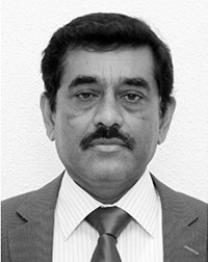
Meeting the 2030 Agenda and the Sustainable Development Goals (SDGs) is inextricably linked with the process of structural transformation. Macroeconomic and financial policies are a key area in which many developing countries face limitations in their capacity to effectively design, manage, coordinate, implement, and evaluate the policy levers of structural transformation. South-South sharing of experiences, including by drawing lessons from success stories such as China’s development strategy, can help to address this shortcoming and assist national capacity-building.
China’s successful development experience over the past 40 years has been based on a pragmatic, gradual and experimental approach to development. Many other developing countries adopted policy strategies that emphasize reducing state influence over key macroeconomic policy levers such as exchange rates and interest rates, combined with broad-based liberalization and privatization at the sectoral level. This latter approach did not result in structural transformation. As such, China’s experience may act as a reference point from which other developing countries can assess alternative economic policy options that are consistent with their own objectives for structural transformation and adapted to their own specific circumstances.
This webinar looks at macroeconomic and financial policies from a comparative cross-country perspective. It aims at fostering a better understanding of the key macroeconomic and financial policy challenges that developing countries face and the extent to which China’s development strategy, trajectory and dynamics can inform other countries’ macroeconomic and financial policy strategies.
Guiding questions for panellists:
- What key macroeconomic and financial policy challenges do developing countries face in their path towards catch-up growth and structural transformation?
- To what extent is China's macroeconomic framework relevant for the current needs and challenges facing developing countries? What elements of this framework appear most pertinent? Can these be adapted, or embedded, in home-grown policies?
- What elements of China's financial sector reforms can prove useful for developing countries? What can be learned from China regarding the role of macro-prudential policies?

Richard Kozul-Wright is the director of UNCTAD’s globalization and development strategies division.
He has worked at the UN in both New York and Geneva and published widely on economic issues, including in the Economic Journal, the Cambridge Journal of Economics, the Journal of Development Studies, and the Oxford Review of Economic Policy.
He has co-written books such as The Resistible Rise of Market Fundamentalism with Paul Rayment and co-edited volumes of Transnational Corporations and the Global Economy, Economic Insecurity and Development, Securing Peace, Climate Protection and Development and Industrial Policy.
He also co-edited Transforming Economies: Making Industrial Policy Work for Growth, Jobs and Development with the International Labour Organization.
He holds a PhD degree in economics from the University of Cambridge in the UK.

Ricardo Gottschalk is a Senior Economist in the United Nations' Resident Coordinator Office (RCO) in South Africa where he coordinates SDG-related research and analysis. Between 2012-2020, he worked at UNCTAD, Geneva.
Prior to that, he was a Research Fellow at the Institute of Development Studies, Brighton UK, where he co-directed the MPhil Development Studies and convened the MA Globalisation and Development.
He holds a BA in Economics from the University of São Paulo, and MA and DPhil degrees in economics from the University of Sussex, UK.

Shuyu Wu is an Assistant Professor at the School of Economics and Resource Management, Beijing Normal University in China. She also works as a research fellow at the Academic Centre for Chinese Economic Thinking at Tsinghua University.
Her research focusses on monetary economics and China's macroeconomy. Before joining the university as a research and teaching staff, she worked as a consultant with the Macro and Fiscal Team at the World Bank's Beijing office and was in charge of China's macroeconomic analysis.
Nandalal Weerasinghe served as the Senior Deputy Governor of the Central Bank of Sri Lanka prior to his retirement from the Central Bank in January 2021. During his 29 years of service as a central banker he held several key positions such as the Chief Economist, Director of Economic Research and Deputy Governor.
Currently he provides consultancy services to several global companies and multilateral agencies. From January 2010 to August 2012, Mr. Weerasinghe was on release to the International Monetary Fund as the Alternate Executive Director for India, Sri Lanka, Bangladesh, and Bhutan and served as a member of the Executive Board of the IMF.
Mr. Weerasinghe has a Ph.D. and a Masters' degree in Economics from the Australian National University.
Andualem Telaye Mengistu is a senior researcher at the Policy Studies Institute (PSI) in Addis Ababa, Ethiopia. His main areas of research include macroeconomics and public finance.
Apart from his academic roles, he has served as the public investment advisor to the Planning and Development Commission of Ethiopia, and he is currently serving as the fiscal risk advisor to the Ministry of Finance of Ethiopia.
Andualem holds a Ph.D. in Economics from the Stockholm School of Economics.
Stephany Griffiths-Jones is an economist specialising in international finance and development, with emphasis on reform of the international financial system, specifically in relation to financial regulation, global governance and international capital flows.
She is currently Financial Markets Programme Director at the Initiative for Policy Dialogue, Columbia University in New York, and Emeritus Fellow of the Institute of Development Studies, University of Sussex. She has held the position of Deputy Director of International Finance at the Commonwealth Secretariat and has worked at the United Nations Department of Economic and Social Affairs and in the United Nations Economic Commission for Latin America and the Caribbean.
Professor Griffiths-Jones has published over 20 books and authored many scholarly and journalistic articles. She holds a PhD degree in Economics from the University of Cambridge, UK.
Tony Addison is a Professor of Economics in the University of Copenhagen’s Development Economics Research Group (DERG). He is also a Non-Resident Senior Research Fellow of the United Nations University’s World Institute for Development Economics Research (UNU-WIDER) in Helsinki, Finland. He was previously the Chief Economist/Deputy Director of UNU-WIDER.
He was Professor of Development Studies, Manchester University (UK) and Executive Director of the Brooks World Poverty Institute, Manchester University, and has held faculty positions at the University of Warwick (UK) and SOAS, London University. His latest book is Extractive Industries: The Management of Resources as a Driver of Sustainable Development (Oxford University Press, 2018).
He is currently working on the outlook for the extractive industries in the light of climate change and the COVID-19 pandemic.

Intan Nadia Jalil is the Regional Head, Group Economic and Market Analysis for CIMB Bank Berhad. Her previous appointments include CEO of the PNB Research Institute, Associate Director of Economics at the Malaysian Aviation Commission, and Deputy Director of Research at Khazanah Research Institute.
Ms. Nadia has 17 years of experience in macroeconomics research, and in developing comprehensive economic development policies, strategies, and plans in Malaysia and Southeast Asia, including a term as Malaysian economist for the World Bank. Nadia holds an MSc in Regional and Urban Planning Studies from the London School of Economics and Political Science, and graduated from the University of Cambridge, United Kingdom with a BA in Economics.






